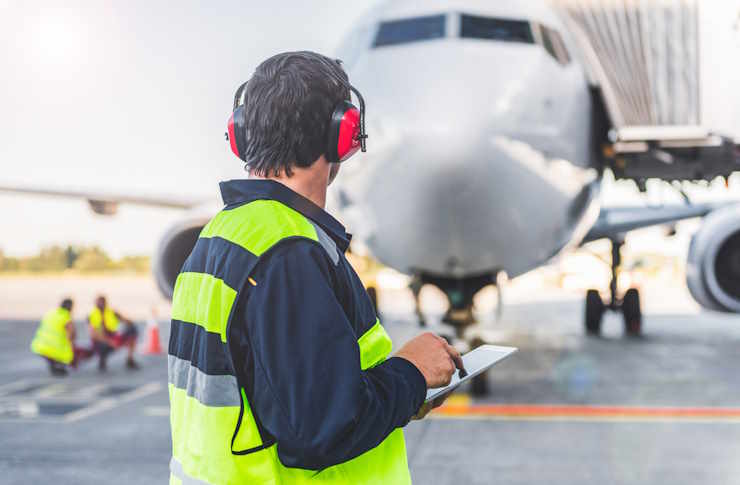Airport Jobs: Complete Guide to Aviation Career Opportunities
Learn how to get into airport jobs by understanding the variety of roles available, from customer service and security to operations and management. Gaining relevant skills, certifications, and experience can help candidates navigate the hiring process and build a career in the dynamic airport environment.

How to Get Airport Jobs: Application Process and Strategies
Securing employment at an airport typically involves several steps, starting with identifying available positions through official airport websites, airline career pages, and government job portals. Most airport positions require candidates to pass comprehensive background checks, including criminal history screenings and employment verification processes that can take several weeks to complete.
Transportation Security Administration (TSA) clearances are mandatory for many airport roles, particularly those requiring access to secure areas. Applicants must be U.S. citizens or authorized to work in the United States, and some positions require additional security clearances that involve fingerprinting and extensive background investigations.
Networking within the aviation industry proves valuable, as many positions are filled through internal recommendations and industry connections. Attending job fairs hosted by airports and airlines, joining professional aviation organizations, and connecting with current airport employees can provide insights into upcoming opportunities and application requirements.
Entry-Level Airport Jobs and Requirements
Airport environments offer numerous entry-level positions that provide excellent starting points for aviation careers. Customer service representatives, baggage handlers, ramp agents, and security screening officers represent common entry-level opportunities requiring minimal prior experience.
Most entry-level positions require high school diplomas or equivalent education, though some roles prefer candidates with college coursework or technical training. Physical requirements vary by position, with baggage handling and ramp operations demanding the ability to lift heavy items and work in outdoor conditions.
Training programs are typically provided by employers, covering job-specific procedures, safety protocols, and equipment operation. These programs can range from several days to several weeks, depending on the complexity of the role and regulatory requirements governing specific positions.
Skills Needed for Airport Roles
Airport employment demands a diverse skill set combining technical knowledge, interpersonal abilities, and attention to detail. Communication skills are essential across all airport positions, as employees regularly interact with passengers, colleagues, and regulatory officials from various cultural backgrounds.
Technical skills vary significantly by role but often include computer proficiency, equipment operation, and understanding of safety procedures. Customer service positions require patience, problem-solving abilities, and the capacity to remain calm under pressure, particularly during flight delays or emergency situations.
Physical fitness and mental alertness are crucial for many airport roles, especially those involving security screening, aircraft maintenance, or ground operations. Language skills beyond English can provide competitive advantages, particularly in international airports serving diverse passenger populations.
Airport Job Opportunities: Available Positions and Sectors
Airports encompass multiple business sectors, each offering distinct career paths and advancement opportunities. Airlines employ pilots, flight attendants, maintenance technicians, and customer service staff, while ground handling companies hire ramp agents, baggage handlers, and equipment operators.
Federal agencies maintain significant airport presences, with TSA, Customs and Border Protection, and Federal Aviation Administration offering government employment opportunities with comprehensive benefits packages. Retail and food service establishments within airports provide additional employment options in hospitality and customer service sectors.
Private contractors handle various airport functions, including cleaning services, security, parking operations, and specialized technical services. These companies often provide entry points into airport employment with potential career progression opportunities within the aviation industry.
| Position Type | Average Annual Salary | Requirements | Growth Outlook |
|---|---|---|---|
| TSA Security Officer | $40,000 - $50,000 | High school diploma, security clearance | Stable demand |
| Airport Customer Service | $35,000 - $45,000 | High school diploma, communication skills | Moderate growth |
| Aircraft Maintenance Tech | $55,000 - $75,000 | Technical certification, A&P license | High demand |
| Air Traffic Controller | $125,000 - $175,000 | FAA training program, college preferred | Competitive field |
| Airport Manager | $80,000 - $150,000 | Bachelor’s degree, management experience | Limited openings |
Prices, rates, or cost estimates mentioned in this article are based on the latest available information but may change over time. Independent research is advised before making financial decisions.
Career Paths in Airport Operations and Management
Airport operations and management offer structured career advancement opportunities for dedicated professionals. Entry-level operations positions can lead to supervisory roles, department management, and eventually executive positions overseeing entire airport functions.
Management tracks typically require formal education, with many positions preferring bachelor’s degrees in aviation management, business administration, or related fields. Professional certifications from organizations like the American Association of Airport Executives provide valuable credentials for career advancement.
Specialized career paths exist within airport operations, including air traffic control, aviation maintenance, security management, and commercial development. Each path offers distinct advancement opportunities, salary ranges, and educational requirements, allowing individuals to align their careers with personal interests and aptitudes.
Airport employment provides stable career opportunities within a growing industry, offering diverse positions suitable for various skill levels and educational backgrounds. Success in airport careers typically depends on reliability, attention to detail, and commitment to safety protocols that ensure smooth aviation operations. With proper preparation, relevant skills development, and persistence through application processes, individuals can build rewarding careers within the dynamic aviation industry.




